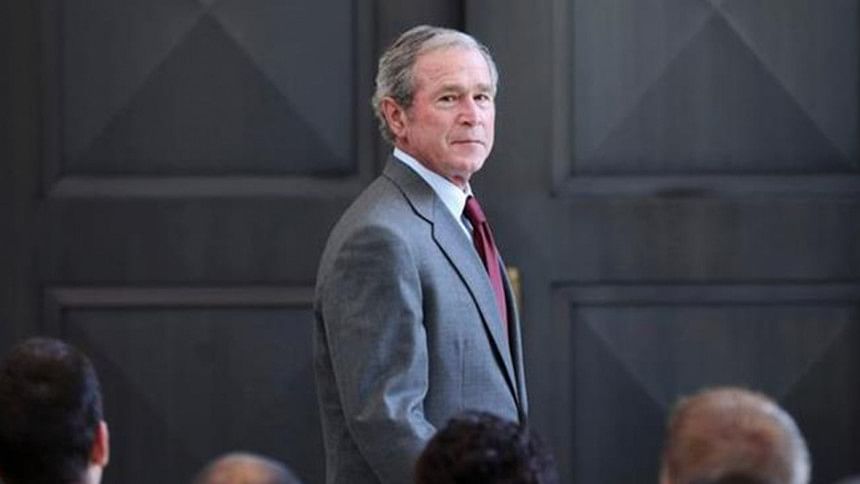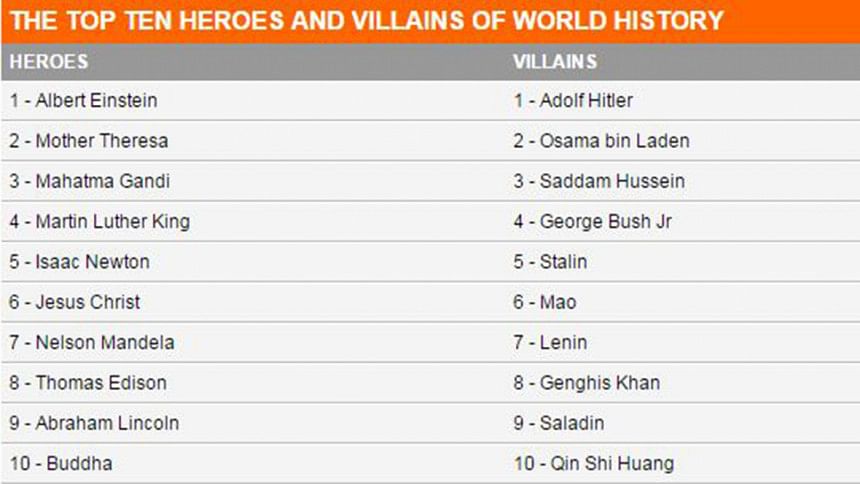Bush is more hated than Stalin

George W Bush has gone down in history as one of the world's most evil people, just behind Adolf Hitler and Osama bin Laden.
The former president beat Stalin, Mao and Lenin as a figure of hate in a new study of history's biggest heroes and villains, reports Mail Online.
Albert Einstein, meanwhile, beat Mother Theresa, Martin Luther King and even Jesus Christ to be crowned the world's biggest hero.
This is according to the opinions of almost 7,000 students from 37 countries including Argentina, Pakistan, South Korea, Italy, and the US.
The students, who had an average age of 23, were asked to give their opinions on 40 figures and significant events throughout world history.
It revealed some surprising results, with George W Bush sitting alongside the world's most hated dictators.
The authors suggest that 'the impact of time' explains the strange results.

For instance, while Stalin and Genghis were 'responsible for innumerably more deaths', memory of Bush's presidency is more recent.
The university students had to rate on a scale from one to seven how positive and how negative the events and figures presented were.
The heroes appear to be scientists, discoverers and people who fought for liberties. They include Mahatma Gandi, Isaac Newton, Buddha and Abraham Lincoln.
Among the top 10 villains were Genghis Khan, Mao, Lenin, Stalin and Qin Shi Huang.
National opinions tended to agree regarding the heroes, but were divided when it came to the villains.
'There is greater disparity of opinion about the villains,' said Darío Páez, a lecturer at UPV/EHU-University of the Basque Country.
'The same figure may be very negatively rated in one country, or not very negatively or even very positively in another part of the world.
'That would be the case of Osama bin Laden, for example'.
When the students were asked to respond spontaneously about who the most important figures in history were, names of political or military leaders were given.
Researchers believe this is because the things that occurred to the students were wars, conflicts and power struggles.
But when the questions were closed ones and they sat down to think about them, the same students attached greater importance to scientists and other humanitarian figures.
Likewise, when the scientists asked about historical events, facts with a long time span such as the industrial revolution or the development of science were regarded as important as wars.
Using a technique known as Latent Profile Analysis (LPA), the scientists identified four 'profiles' among the participants.
'Religious idealists' and 'Secular Idealists' had strongly negative views towards Osama, Saddam, and Hitler.
'Religious Idealists' and 'Political Realists' thought positively of religious leaders such as Buddha and Jesus.
'Historical Indifferents' didn't have a strong feeling for anyone, apart from George W Bush who they disliked.
The only figure that all four groups disliked was Bush, the study found.

 For all latest news, follow The Daily Star's Google News channel.
For all latest news, follow The Daily Star's Google News channel. 



Comments